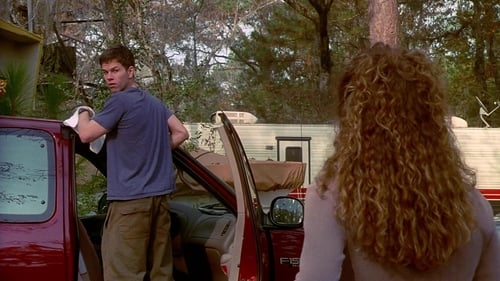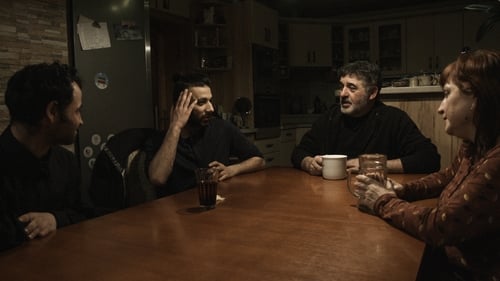Všetky moje deti (2014)
Жанр : документальный
Время выполнения : 0М
Директор : Ladislav Kaboš
Писатель : Ladislav Kaboš
Краткое содержание

Добродушному Бокки доверяет каждый встречный, чем Бокки и пользуется, без зазрения совести обманывая наивных обывателей, ведь он принадлежит к легендарному клану мошенников, которые называют себя «путешественниками». Познакомившись на похоронах родственника с его сыном Пэтом, Бокки решает обучить парня ремеслу семьи. Один хитрец как раз предлагает им провернуть крупное дело, и Пэт только за, но Бокки еще никогда так не рисковал. Он знает точно — в этот раз неудача может стоить ему жизни…

The film is separated into four chapters, each tracking a different group of protagonists who all have one thing in common – they were born deaf. Little Sandra likes to play football and admires Ronaldinho. Marián worships trains and wants to be an engine driver. Teenagers Alena and René are expecting a baby and long for it to be born healthy. The trio of Roman, Kristián and Karmen help their parents by collecting junk to be sold and dream of one day having a house with a flush toilet.

When Czech singer Ida Kelarová meets the young Roma singer, Vierka Berkyová, she discovers an extraordinary and vibrant talent. Determined to develop her musical abilities and career, she brings her and her family from their home in Slovakia to live in the Czech Republic. They are encouraged to learn new routines and develop their lives in a variety of 'productive' ways. Then, one day they disappear without trace. What began as a document about Verika develops into a mystery. [taken from the London Film Festival 2006 catalogue]

A vivid documentary portrait of Véra Bílá (1954-2019), a Gypsy singer acclaimed in the international music world. The film explores Romany culture and what it means to be part of a marginalized minority group. She was dubbed the Ella Fitzgerald of Romani music. The Czech singer enjoyed international success in the late Nineties when she was signed to the German record label BMG.


Ever since the first Roma people arrived in Sweden five hundred years ago, they have been discriminated against and persecuted. The lack of knowledge, invisibility and denial of the historical abuses that Roma have been exposed to is one of the many contributing causes of continued marginalization and vulnerability of Roma today. Here, the Roma tell of the abuses and persecutions they experienced during the 20th century. How it felt like as a child being constantly expelled from the camp, not infrequently in the middle of the night, with violence and under gunfire. Soraya Post from the traveling group tells how her mother, as a pregnant 23-year-old, was forced to abort her child in the seventh month. The reason: She was a "gypsy".

The news about the Swedish police's registry of Roma people has generated very strong reactions. In this new documentary we meet some young Swedish Roma people who talk about their feelings and thoughts about the registration.

The Way Out tells a story of a young Romani couple, Zaneta and David, the parents of little Janicka. Their efforts to live a decent and dignified life run up against the "Romani social trap," which is racism, the society's prejudices, exclusion from opportunities to obtain legal work, the lack of necessary qualifications, difficult communication with officials, debts and the miserable life conditions connected with the environment, lifestyle and traditional values of their ethnicity. David wants to protect his family, even at the expense of committing a crime. But Zaneta finds inner strength to defy the unfavorable situation in a different way. Will they overcome the existential problems that start to take apart their relationship? Is it worthwhile for them to continue to Honor their own values and family traditions? And will their "way out" be only another "escape" for them, or a promise to change their lives?


The central figure of the documentary is Robin Stria, an amateur filmmaker who is trying to create the first Roma sitcom in the Czech Republic. Its title - Miri Fajta - means My Family in Romani, and the Romani creator wants to tell a story about Romani using Romani actors. At the same time, it offers him the opportunity to think more deeply about his identity and show it at a time when the issue of self-awareness is also a problem of representation, because Roma creators are scarce.







